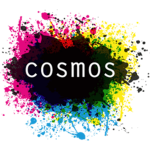Is “#MeToo” a social movement? Is Nuit Debout a social movement or just an event? Are trade unions still social movements? Local food network who dedicate most of their time and energy to local food distribution to their members. Does it mean that they are not a social movement but a self-help network?
“Is it a social movement?” PhD students have raised the question about their research object in each seminar and course on social movements I have taught. Over the year, I have seen many of them struggling for months with this question and its underlying normative stances. I had myself been trapped by this question and the inevitable analytical dead ends it entails.
The problems raised by these three set of epistemological and analytical dead ends and the strong normative assertion that have been associated to the concept by some scholars have led most of scholars of the field to abandon the concept of social movements, replacing it by “collective actions”, “protests”, “contentious politics”, “resistance” among other alternatives.
In this adverse context, I would like to make a plea for the concept of social movement. It is certainly not a good timing to defend the concept, as it is currently under harsh criticisms by all sides of the research field, from resource mobilization theories to resistance studies and the epistemologies of the South. A talk at COSMOS, the main center of social movement studies in Europe, is however the best occasion to start the discussion and make the point that to remain insightful in social sciences and society, the concept of “social movement” requires an update, based on elements that are already present in the literature as in the way researcher and actors use the concept and experience social movements in the 21st century.
In my presentation, I will argue that considering the concept of social movement as a specific meaning of action allows us to get rid of these analytical dead ends and opens an insightful and comprehensive approach of contemporaneous social movements that need to be understood beyond the classic dichotomies between individual or collective, public or private, political or cultural. I will illustrate this definition and the analytical approach it entails by applying it to two cases: local food movements and indigenous movements.
01/07/2024

14/06/2024

10/06/2024

03/06/2024

17/05/2024

21/03/2024

Journal Article - 2023
Journal Article - 2023
Journal Article - 2023
Journal Article - 2023
Monograph - 2023
Monograph - 2022
Monograph - 2022
Journal Article - 2021
Monograph - 2021
Journal Article - 2021